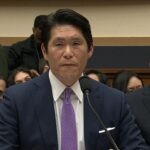
Published April 13, 2022
For much of the 1990s and 2000s, discussions around school choice focused narrowly on a bipartisan push to improve academic performance in inner-city schools. It was an era of charter schools, test scores, and “accountability.”
But that movement stalled out, in no small part because the ultimate question about the purpose of education can only be avoided for so long. A school system cannot paper over profound disagreements over how society should teach about race, gender, and sex by pursuing an unattainable neutrality. And in recent years, people with advanced degrees from Schools of Education and professional administrators have increasingly seen neutrality as part of a system of oppression.
Recent battles over “critical race theory,” gender theory, and eliminating academic tracking over concerns around “equity” lay bare what scholars like Charles Glenn and Ashley Rogers Berner have long argued—that a school system cannot be neutral when it comes to values.
As J. Grant Addison recently wrote for the Washington Examiner, following other writers including Robert Pondiscio, Jay P. Greene, and myself, the next generation of school choice advocacy is recognizing anew that there can be no such thing as value-neutral education. That realization should spur a new push for approaches to education that give parents and communities more choices.
Some legislative efforts focus on setting guardrails on public schools, such as the recently-signed Florida law ensuring young children don’t receive classroom instruction on topics their parents might not want them exposed to. Some of these efforts will be more effective than others; would-be bans on so-called “critical race theory” are easily circumvented by avoiding that phrase while still teaching divisive concepts in the name of anti-racism.
Empowering parents should follow a both/and strategy: Giving parents more opportunities to weigh in on public school curricular choices, while also giving them more power to pursue the educational opportunities that best suit their child.
While states like Arizona and Indiana have traditionally led the way in offering broader school choice, a new gold standard was set by West Virginia in the wake of the pandemic. The state’s Hope Scholarships program offers parents whose child had been in public school to take the average per student amount of state aid (in 2021, about $4,600) to use for private school tuition, tutoring, or special education therapies.
What makes the West Virginia bill a standout is how broad potential eligibility is for these dollars—93% of students are eligible, according to the school choice advocacy group EdChoice. It is not limited to families of a certain income, has no cap on how many total students can take advantage of the program, and only requires that students be entering kindergarten or switching out of a public school (that requirement is subject to change in 2026.) While lawsuits have threatened to delay the rollout of the program, enrollments opened for the first time last month, with 500 families starting their application on the first day of availability.
West Virginia’s schools have traditionally lagged behind in national rankings; in 2019, only 30% of Mountaineer State fourth-graders were proficient in math and reading. And as voter backlash in Virginia and San Francisco has shown, parents want schools to focus on instruction first and foremost. In places where public schools are unable to perform, or too distracted by trendy social justice initiative to focus on their primary role, the bold approach of West Virginia can offer a model for giving more parents an exit.
Some, like the Washington Free Beacon’s Aaron Sibarium, have despaired that private schools have gone even more “woke” than public ones. But it is important to distinguish between the elite prep schools his reporting focuses on and the more typical experience of a parochial or religiously-affiliated private school, which make up 75% of private school enrollment. Indeed, enrollment in Catholic schools rose 5.8 percent nationwide last year.
Some of that was doubtless due to parental frustrations and uncertainty around how the ongoing response to the pandemic would impact their students’ experience. But some of this, as the Wall Street Journal editorial board noted, is also likely tied to frustrations about critical race theory or gender ideology in the classroom.
More policymakers, particularly in red states, should make a values-based case for school choice. As research from Greene and James D. Paul for AEI found, most school choice initiatives could have been passed by Republican majorities alone (though their retrospective analysis does not control for the fact that moderate Republicans may find it easier to vote for a piece of legislation with bipartisan cover.) In my home state of South Carolina, lawmakers have decided to spend the bulk of the state’s budget surplus on across-the-board tax relief and scale back their expansive school choice plans to a smaller (though, of course, still welcome) program ultimately capped at 15,000 students from Medicaid-eligible families. They, and other state legislatures, should consider flipping the order of those priorities.
Neither school choice alone nor curriculum transparency laws will be enough to address conservatives’ concerns with the K-12 education system. A more comprehensive rethinking of public education should move beyond pure choice, to proactively cultivating schools grounded in distinctive communities.
But responding to the reality that public schools are not and cannot be neutral should lead state policymakers to give all parents more tools to respond. The current moment needs policymakers willing to prioritize giving each parent more agency over both where their child attends school, and what kind of values those schools attempt to foster.
Patrick T. Brown is a fellow at the Ethics and Public Policy Center, where his work focuses on developing a robust pro-family economic agenda and supporting families as the cornerstone of a healthy and flourishing society.
Image: Element5 Digital on Unsplash
Patrick T. Brown is a fellow at the Ethics and Public Policy Center, where his work with the Life and Family Initiative focuses on developing a robust pro-family economic agenda and supporting families as the cornerstone of a healthy and flourishing society.












